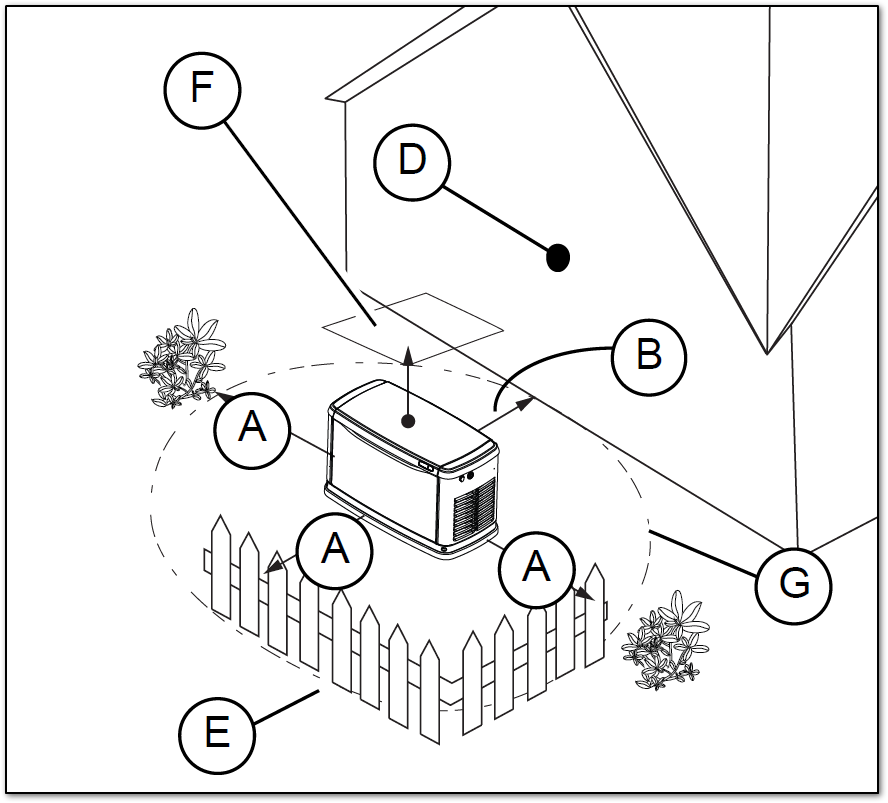Clearance requirements for home standby generators
Read the manual thoroughly and understand all of the instructions, cautions, and warnings before using this equipment. If any section of the manual is not understood, contact your nearest authorized dealer, or contact Generac Customer Service at 1-888-436-3722 (1-888-GENERAC), or www.generac.com with any questions or concerns.
Ensuring the area around your generator is clear and free of obstructions is essential for optimal performance and safety. This article provides a detailed guide on maintaining clearance and managing snow, which is crucial for year-round generator efficiency.
Environment
This article applies to all air-cooled home standby generators.
Importance of area maintenance
- The generator's engine, alternator, and exhaust system components become hot during operation. Fire risk increases if the unit is not properly ventilated or operates too close to combustible materials. Additionally, accumulations of flammable debris within or outside the generator enclosure may ignite.
- Clearance requirements are primarily in place for fire prevention and airflow, but also to provide sufficient room for removing front and end panels for maintenance purposes. Note that CO (carbon monoxide) considerations may require greater clearances than required for fire prevention and airflow.
- For more information about clearances, including CO considerations, see the What Should I Know About Clearance Requirements When Installing My Generator? article.
Clearing surrounding areas of debris, vegetation, and snow
Regularly scheduled generator maintenance includes the removal of leaves, grass, snow, etc. from the specified clearance areas.

Snow and error impacts
Clearance guidelines
- Front and End Clearance: Keep a minimum clearance of 3 feet (0.91m) around the generator’s front and ends.
- Overhead Space: Ensure a 5-foot (1.52 m) vertical distance from overhead structures or tree limbs.
Accessibility
Keep pathways to the generator clear for easy access during maintenance or emergencies.
Snow management
- Regular snow removal: After snowfall, promptly clear snow from around the generator, focusing on air intakes and exhausts to prevent blockages.
- Drift control and snow fences: Consider installing snow fences or barriers to prevent blowing or drifting snow, ensuring they’re placed outside the required clearance zones.
Snow fence installation guide:
- Location and Orientation: Place the snow fence perpendicular to prevailing wind directions to effectively trap snow on the downwind side.
- Distance from Protected Area:
- Fetch length is described as the distance wind can travel. This distance helps to determine how far the fence should be installed from the generator area.
- Place the fence at a distance that is 20–35 times its height away from the generator.
- For example, if the fence you're installing is 4 feet tall, it should be 80–140 feet from the generator.
- Porosity: Choose fence materials that are 40–60% porous. This level of porosity helps reduce wind speed, causing snow to settle behind the fence.
- Length of Fence: Ensure the fence extends well beyond the generator area on both ends to prevent snow from blowing around the fence.



